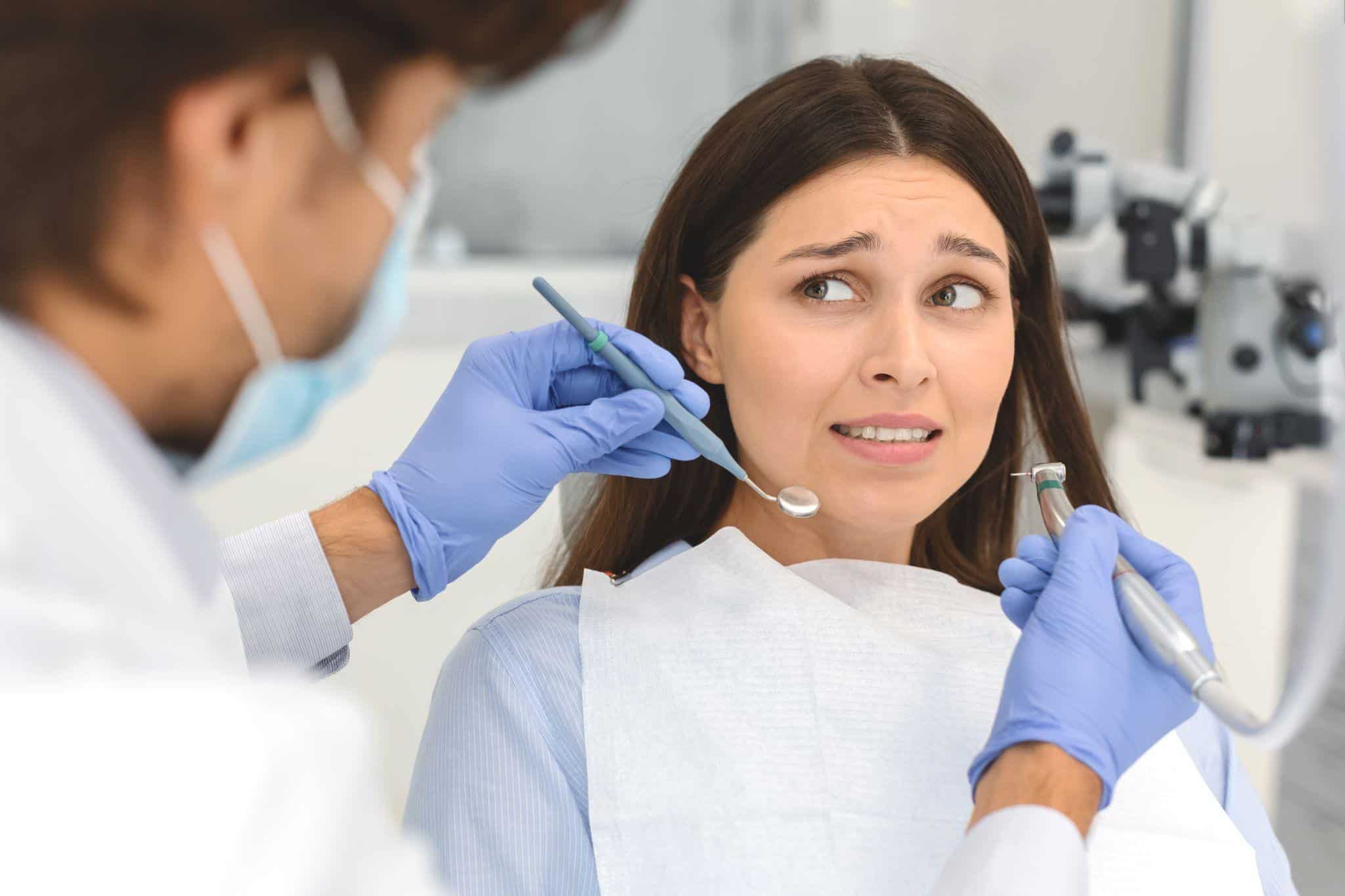Despite the importance of oral health, there are some who dislike dentists enough to prevent them from getting needed dental treatment. Odontophobia or dentophobia are two names for a very real and extreme but manageable condition. But it doesn’t have to run your life; this guide will reveal ways to cope with and overcome odontophobia.
Overview of Dentophobia
Although many assume that fears and phobias are the same thing, the reality is that they are very different. A person’s fear may or may not be rational, and can cause them to avoid the experience they dread. But, thoughts or feelings related to a particular fear don’t usually manifest themselves until a person is faced with it.
For example, a fear of going to the dentist may mean procrastinating until a dental problem absolutely must be addressed. Or, you may tolerate dental visits, despite the fact that you really dislike the noisy tools used during dental procedures.
In contrast, a phobia is an anxiety disorder. This is because phobias cause a person enough intense stress and anxiety to interfere with their enjoyment of daily life. And unlike a dental fear, a phobia can develop over things that are very unlikely to cause actual harm.
Even thinking about going to an appointment can trigger dental anxiety or a panic attack in a person with dentophobia. They may be unable to stop thinking or worrying about an upcoming visit, and thoughts about visiting the dentist may render them unable to get through the day.
Types of Dentophobia
A person’s intense anxiety about going to the dentist can be related to one or more of the following:
- The dentist themselves (white coat, personality, etc.)
- Certain noises in the dentist’s office
- Needles used by the dentist for anesthesia (numbing)
- The pain of dental procedures
Causes of Dentophobia
Dentophobia may have one cause or be the result of a number of causes. Some people experience extreme anxiety about one aspect of a dentist visit, where others may experience anxiety about several aspects.
Past Trauma
A very common cause of dentophobia are bad experiences during past dental visits. When this becomes magnified, it can result in trauma to a patient that ultimately causes dentophobia.
Sensitivity to Pain
Those with low pain thresholds may also develop dentophobia. Typically, they associate dentists with causing pain, despite the fact that the tools, treatments and techniques of modern dentists are designed for the highest possible comfort.
Sensitivity to Smell
The smells associated with dentistry, such as laughing gas or cleaning compounds can be enough to cause dentophobia to develop. This is especially true for those who may have had negative dental experiences in the past.
Embarrassment
Having a dental condition you’re embarrassed about, such as bad breath or broken or missing teeth can progress from mere self-consciousness into dentophobia.
Fear of the Unknown
Not knowing what’s going to happen during a visit to the dentist is another cause of dentophobia. This can be compounded by the loss of control some feel when in the dentist’s chair.
History of Anxiety Disorders
A family history of phobias related to pain, needles, or physical touch can cause dentophobia to develop. Certain gene mutations can also increase the risk of this phobia.
Coping With a Fear of the Dentist
Managing dentophobia or overcoming it completely is possible with the following tips and techniques.
Relax Body and Mind
Breathing in the right way can help you feel less anxious about dental visits. Inhale through the nose and exhale through the mouth, concentrating on how your lungs feel as they fill and empty of air.
Close your eyes and visualize what a positive experience at the dentist would look, feel, sound, and smell like. Or, obtain full body relaxation by clenching and unclenching each muscle group independently until all muscle groups feel less tense.
Bringing your favorite music with you can greatly reduce the stress you may be feeling about seeing the dentist.
Invite a Friend
Having a friend or loved one with you when you visit the dental office can help you feel less anxious about it.
See Your Counselor
If you are currently receiving treatment for dentophobia, it can help to book an appointment with your mental health professional before you go to the dentist.
Talk to Your Dentist
Making your dentist aware of your dentophobia can get you the help you need to stay relaxed during dental work.
The Right Dentist Makes All the Difference
Although you may not think that having a rapport with your dentist will make you feel better about going to see them, the reality is that it can have a significant impact on your experience in the dental chair.
If you have dentophobia, it’s important to find a dentist that understands the condition, and who will do everything in their power to maximize your comfort while minimizing your anxiety.
Dr. Joseph Goodman understands dentophobia. His extensive experience in cosmetic and reconstructive dentistry, and top patient care has caused him to receive several “top dentist” and “best dentist” accolades over the last several years. Contact him today for more information.
